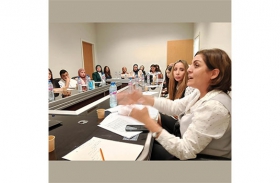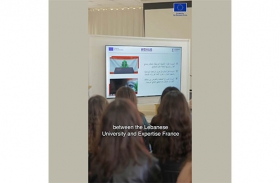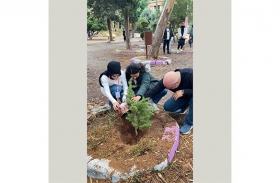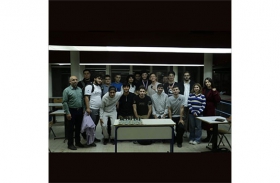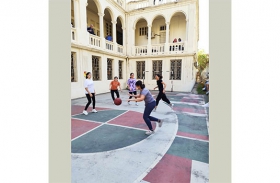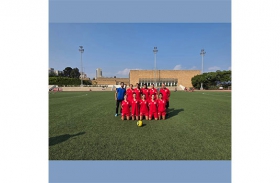
Conclusion of the Arab-Ottoman Relations Conference at the FLHS - Branch 3
The History Department at the Faculty of Letters & Human Sciences – Branch 3 concluded the Arab-Ottoman Relations Conference by issuing a series of recommendations aimed at promoting joint academic research in Arab-Ottoman history.
The conference, sponsored by President Bassam Badran, opened with an official session attended by the Turkish Ambassador to Lebanon, Murat Lütem, the Dean of the FLHS, Dr. Soha El Samad, the Mufti of Akkar, Sheikh Zaid Bakkar Zakaria, Metropolitan Archbishop of the Archdiocese of Tripoli, al-Koura and Dependencies of the Church of Antioch, Ephrem Kyriakos, Sheikh Nader Jomaa representing the Mufti of Zahle and Bekaa, Sheikh Ali Al-Ghazawi, Dr. Sami Rida, representing MP Karim Kabbara, former MP Misbah El-Ahdab, Major General Ahmad Noman, representing the Commander of the Northern Military Region of the Lebanese Army, Brigadier General Bassem al-Ahmadieh, in addition to representatives of the deans of the Lebanese University and private universities in the North, as well as cultural, intellectual, and community figures.
Forty researchers and historians from Lebanon, Turkey, Egypt, Algeria, Jordan, Tunisia, and Iraq participated in the conference, which addressed several topics, most notably the reality of the term "New Ottomanism", the reforms of the Ottoman Empire and its relationship with churches and different religious and ethnic identities, and Ottoman identity between Turkification and Arabization.
The conference concluded with a set of recommendations:
- Contribute to the standardization of terminology in the writing of Ottoman history.
- Form a specialized committee from Arab and Turkish universities to develop new curricula for reinterpreting Ottoman history.
- Encourage Arab and Turkish researchers and historians to conduct joint studies and research on the social and economic history of the Ottoman Empire.
- Encourage researchers and historians to work on studies of the administrative structure and waqf institutions of the Ottoman Empire
- Seek to launch an Arab Turkish dialogue forum focused on studying the shared historical mindset that shaped Arab-Ottoman relations.
- Develop a process for organizing archives and training specialists in how to handle and use documents in Arab countries and Turkey.
- Encourage researchers to study Arabic and Ottoman languages.
- Create an encyclopedia of Arab historical geography during the Ottoman era.
- Exchange joint scientific missions between Arab and Turkish universities and with research institutions and libraries.
- Strive to organize this conference periodically and publish a peer-reviewed electronic journal that allows researchers to publish their research.
- Work on the electronic digitization of Sharia court records and form a committee of specialists in statistics to study quantitative Ottoman history.
 LU Services
LU Services
 League of Retired Professors
League of Retired Professors
 News
News
 Vacancies
Vacancies
 International Relations
International Relations
 Contact Us
Contact Us
 Email
Email









